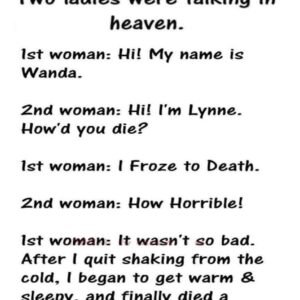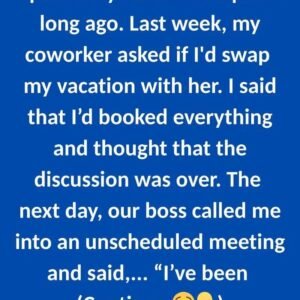I told my daughter she couldn’t go to the concert with a 22-year-old man. She screamed that I was ruining her life and locked herself in her room. At midnight, her bed was empty. I called her phone, shaking. A voice I didn’t recognize answered and said, “She’s fine, but if you ever want to see her again…”
My stomach dropped. My knees buckled, and I had to lean on the wall to keep from collapsing. The voice didn’t sound threatening—just cold. Calculated. He hung up without another word.
I called back immediately, but it went to voicemail. I tried again and again, pacing my kitchen in bare feet, my heart pounding. My daughter, Serena, was only 16. A child. How had I missed this?
I should’ve noticed the signs. Lately, she’d been glued to her phone, texting in quick little bursts and smiling to herself. I thought maybe it was just a new crush from school. I didn’t expect him.
His name was Darren. Twenty-two years old, lived a few towns over. I only found out when she accidentally left her phone on the table while I was doing laundry. A message popped up: “Still on for Saturday? Can’t wait to kiss you again.” My stomach turned just reading it.
That’s when I confronted her. She blew up, called me controlling, told me I didn’t understand her. I tried explaining that this man was too old, that he shouldn’t be speaking to her like that. But she wouldn’t hear it.
Now she was gone. And someone had her.
I called 911 and reported her missing. The operator tried to keep me calm while dispatching officers. I gave them every detail I could remember, even the messages I’d seen. A patrol car showed up within twenty minutes. Two officers came in and sat at my kitchen table.
They asked about Darren. I handed them Serena’s phone, still unlocked. They started scrolling through the texts. Officer Ramirez’s face darkened. “We’ve seen this guy’s name before,” he muttered to his partner.
“What does that mean?” I asked, my voice cracking.
“Darren’s been reported for inappropriate contact with minors before. No charges ever stuck, but…” He looked at me gravely. “We’re going to find her.”
The officers left with the phone and a list of places Serena mentioned in her texts. I couldn’t sit still. I paced, cleaned the counters three times, checked Serena’s room again. Her backpack was gone. So were her sneakers and that old hoodie she loved.
Around 3 a.m., my phone rang again. Same number. I picked up, heart in my throat.
“She’s fine,” the voice repeated. “We’re just talking.”
“Please,” I begged. “Let me talk to her. Please. I’m her mother.”
There was a pause. Then, Serena’s voice came on. She sounded distant, like she was reading from a script. “I’m okay, Mom. Don’t freak out. I just need space.”
Then the line went dead again.
The next day was a blur. The police traced the call to a payphone near a gas station off Route 78. By the time they got there, he was gone. Surveillance footage showed Serena getting into a silver car around 12:15 a.m.
They ran the plates. It was registered to Darren’s cousin.
That gave the police enough cause to issue an amber alert.
Word spread fast. Friends and neighbors started texting me. Some offered help, others just wanted gossip. I ignored most of it until one message stood out. It was from a mom I vaguely knew—Sandra, whose son Ethan was in Serena’s year.
“Hey, I overheard my son saying Serena was meeting up with Darren after school for weeks. I didn’t realize who he was. I’m so sorry.”
She included a screenshot Ethan had sent to a friend. It showed Serena sitting in Darren’s car, laughing.
I forwarded everything to Officer Ramirez.
Later that evening, they tracked Darren’s cousin’s car to a motel two hours away. By the time the cops arrived, the car was gone again—but motel staff confirmed they’d been there. A worker said Serena looked “a little off, like she didn’t want to be there.”
That’s when I cracked.
I broke down in the hallway outside Serena’s room, sobbing into her unicorn pillow. I hadn’t cried like that since her father left us. All I could think was—how did I miss this? How did she fall for a man like that?
Two more days passed. Then something unexpected happened.
A teenage girl showed up at our door.
She looked about seventeen, with faded blue hair and bruises under her eyes. “Are you Serena’s mom?” she asked quietly. “I’m Brooke. I used to date Darren.”
I let her in.
She sat on our couch, clutching a worn-out backpack. “He does this a lot,” she said. “Finds younger girls, says he loves them, then isolates them. When I tried to leave, he threatened to hurt my dog.”
Brooke had escaped months ago but never reported him. “I was scared,” she admitted. “But when I saw the amber alert, I knew I had to say something.”
She gave the police everything—screenshots, photos, even an old address Darren once used as a hideout.
They moved fast this time.
That night, just before midnight, Ramirez called.
They’d found Serena.
She was in a cabin outside Newton, disoriented and frightened but unharmed. Darren had left her there while he “went to get food.” The cabin was part of a property his uncle owned—isolated, surrounded by woods.
When Serena saw the officers, she ran into their arms.
They brought her straight to the hospital for evaluation. I met her there. The second I saw her, I didn’t yell. I didn’t scold. I just hugged her as tightly as I could. We both cried. She kept whispering, “I’m sorry, Mom. I didn’t know. I thought he loved me.”
It took weeks for her to open up fully. Therapy helped. So did time. She said Darren told her everything a lonely teen wants to hear—that she was mature for her age, that her mom didn’t understand her, that he’d “waited long enough” to find someone like her.
He made her feel special. Until he didn’t.
Until he started controlling what she wore, who she talked to, when she could call me. The last call? He made her say that. She was too scared to refuse.
I sat with her every night for weeks. We played board games. Watched old cartoons. Ate too much ice cream. Slowly, I saw the spark come back.
Darren was arrested three days later. The evidence from Brooke and the motel security footage helped the case stick. So did Serena’s statement.
He took a plea deal—ten years, no parole. Some people said it wasn’t enough. Maybe they were right. But at least he couldn’t hurt any more girls.
As for Brooke, I kept in touch. She moved into a women’s shelter nearby and started taking online classes. I dropped off groceries now and then, and she never left without hugging me.
One day, Serena asked if Brooke could come to dinner. That night, over spaghetti and garlic bread, the two girls laughed like old friends. My heart swelled. From something so dark, something beautiful had taken root.
And there was one more twist.
A month after Serena came home, I got a letter in the mail. No return address. Inside was a check for $3,000 and a short note: “You don’t know me, but I heard what happened. I once had a daughter too. She didn’t make it. Use this to help Serena heal.”
I cried reading it. Not just from gratitude—but from the reminder that we’re never truly alone. People care, even from the shadows.
Serena is seventeen now. She’s back in school, doing better than ever. She volunteers with a local group that supports at-risk teens. Says she wants to be a counselor someday.
Sometimes I still lie awake at night, remembering that first call. The terror in my chest. The helplessness. But then I remind myself—we got through it. She came back. Stronger.
This whole experience taught me something I didn’t expect.
Our kids won’t always make perfect choices. They’ll mess up, trust the wrong people, sneak out, fall for sweet lies. But what matters is that they know—deep down—we’ll never stop fighting for them.
Not with anger.
But with love.
If this story moved you, please share it. You never know who might need to read it. And maybe, just maybe, it’ll help another parent—and another child—find their way back to each other.




